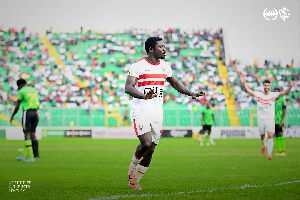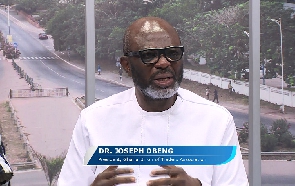Religion of Thursday, 9 September 2010
Source: GNA
Muslims enjoined to recite the Quran regularly
Accra, Sept. 9, GNA - The Muslim brethren have been advised against the habit of making devout worship and the recitation of the Quran a seasonal affair for Ramadan alone, but urged to continue to allow such acts of devotion to permeate their lifestyles always.
"We must all continue and make prayers and recitation of the Holy Koran a constant part of our every day life so as to benefit from the Glory and blessings of Prophet Mohammed (PBUH) and his teachings".
Chief Inspector Sheikh Hussein Abdul-Rahim Hussein, Imam of the Cantonments Mosque, gave the advice in a sermon to the congregation of Muslims at (UN) Libya Quarters in Madina Zongo to climax the Layla-tul-Qadar (Night of Power) overnight retreats conducted in Mosques during the last 10 days of Ramadan.
Throughout Ramadan, and especially during the last 10 days of the month, Muslims are encouraged to call upon Allah for forgiveness, guidance and strength throughout the day and during the nights.
Sheikh Hussein also stressed on time consciousness by all, reminding the brethren that with every beginning there is an end and so Muslims should at all times devote their times to offering prayers to pave the way to the glory of Allah and for salvation, forgiveness and good health.
"You should use the period of your denial of food and drinks during the Ramadan period to undertake social activities and share your experience with the less fortunate and to avoid social vices".
Chief Inspector Hussein said Ramadan should be used as a period of purification by all Muslims, adding "it is gratifying that with the beginning of Ramadan most Muslim men and women begin coming to masjids (Mosques) in their numbers as if by force." He urged them, therefore, to continue worshipping together in Mosques to benefit from the rewards of the fast.
Sheikh Hussein Idris Molah, an Islamic Scholar, also asked the Muslim brethren to seek for forgiveness during the period of Ramadan and to continue to do good for their fellow Muslims and neighbours, so as to benefit from the mercies of Allah.
He enjoined Muslims to use the Ramadan month to make sacrifices, lead decent lives, abhor wickedness, self-destruction, selfishness and greed, and the get-rich-quick attitude, especially among the youth, for them to benefit from the toils and denials of their worship.
Laylatul-Qadar is the night of Revelation (also known as the Night of Power) which is believed to fall on one of the odd numbered nights of the last days of the month of Ramadan: notably the 21st, 23rd, 25th, 27th or 29th, to earn a blessed reward.
Zakatul-Fitr or the giving of charity to the less privileged in the Muslim community at the end of the final day of Ramadan before the Eid prayer, is an important aspect of the month of Ramadan which every Muslim is enjoined to observe, to enable them to derive the full reward of the fast.












